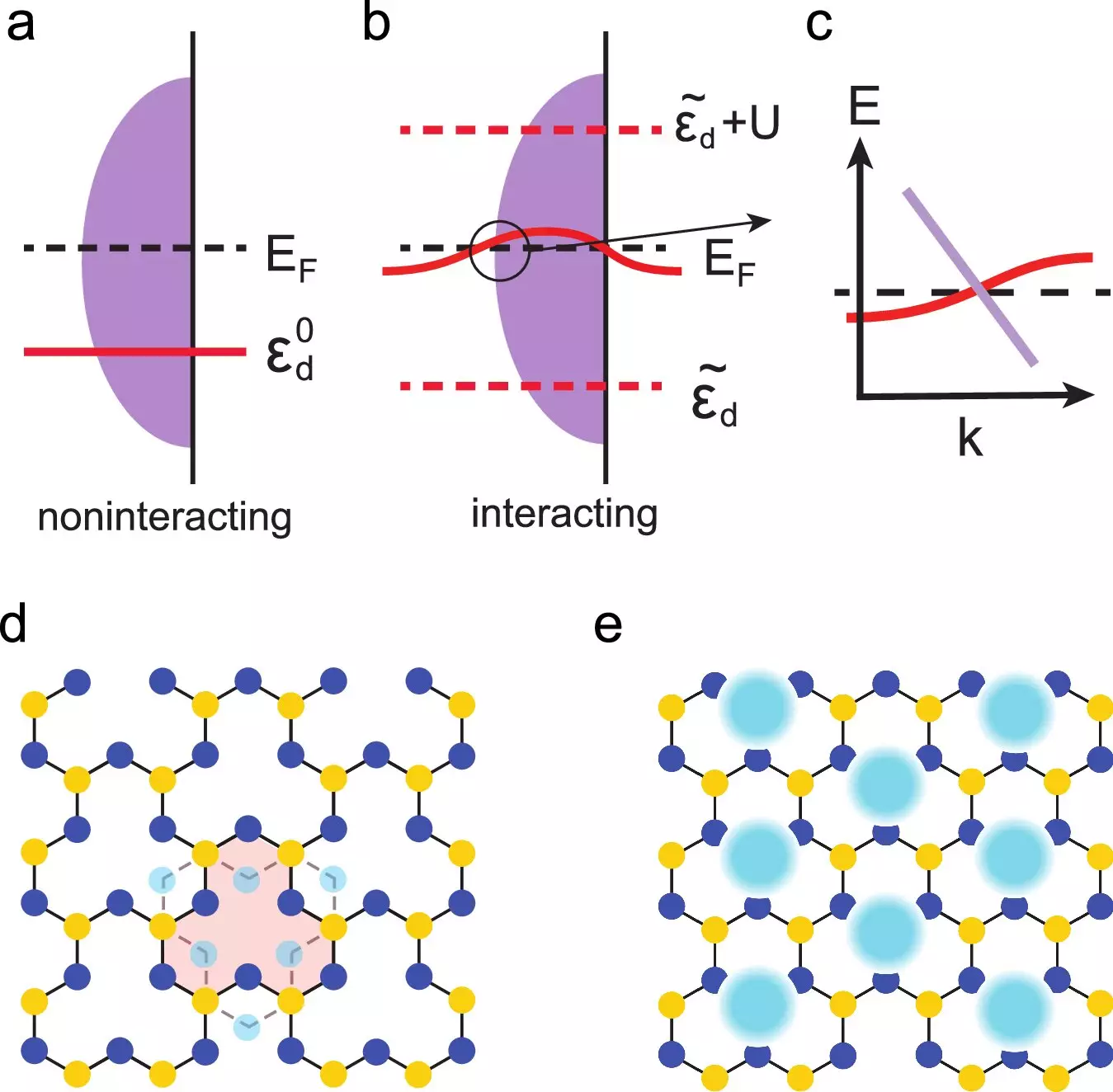The recent study published in Nature Communications by a team of scientists led by Rice University’s Qimiao Si sheds light on the potential of flat electronic bands at the Fermi level in quantum materials. This groundbreaking finding could revolutionize the field of quantum computing and electronic devices, offering new possibilities for advanced technologies.
The study reveals that electron interactions can give rise to flat bands at the Fermi level, which play a crucial role in enhancing electron interactions. Unlike typical energy bands, flat bands remain flat even when the momentum of electrons changes, thanks to quantum interference. This unique property opens up opportunities for creating new quantum phases and exploring unusual low-energy behaviors in materials.
Flat electronic bands are particularly sought after in transition metal ions and d-electron materials with specific crystal lattices. These materials exhibit unique properties that can be harnessed for quantum computing applications, such as quantum bits (qubits) and spintronics. The study suggests that designing materials with flat bands could lead to significant advancements in quantum information processing.
One of the key attributes of flat bands is their topology, which provides a platform for realizing new quantum states of matter. The study identifies the potential for hosting anyons and Weyl fermions in materials with flat bands, offering exciting possibilities for qubits and spin-based electronics. These massless quasiparticles and fermions hold promise for novel quantum technologies.
The research team’s findings indicate that flat bands could enable the development of strongly correlated topological semimetals at relatively low temperatures. This could lead to quantum materials operating at higher temperatures, even at room temperature, expanding the practical applications of these materials. By harnessing the potential of flat bands, researchers can design and control novel quantum materials with enhanced functionalities.
The discovery of flat electronic bands at the Fermi level opens up a new frontier in quantum materials research. By leveraging the unique properties of flat bands, scientists can explore novel quantum phenomena and develop advanced technologies for quantum computing and electronics. The study’s findings lay the groundwork for future innovations in the field of quantum materials, with the potential to revolutionize the way we approach quantum technologies.


Leave a Reply